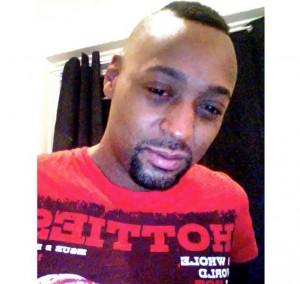Our Cultures of Violence
A few years ago, when I was serving in the suburbs of Connecticut, I was involved in an anti-hate crime event. That year, I did a lot of research and thinking about bias crimes. But these incidents felt far away—hate crimes happened in the city, with all of its diversities, and out on Long Island, where there were high tensions around immigration. Every once in a while, there would be some anti-Semitic graffiti in our town, but I never felt personally affected by bias crimes.
Things are different now. Now, I am in a community where my parishioners have safety plans and fresh fear that is founded upon real threats and violence in our neighborhoods. I work just blocks from the murder of Mark Carson, and the epicenter of organizing against anti-LGBT violence is just about centered on 7th Avenue and 13th Street. Today, hate violence is personal.
On Sunday, I was asked to guest preach at New Day Church in the Bronx. They are celebrating Queer Liberation Month and asked me to speak about how gender relates to LGBT oppression. It wasn’t until I had to think about my own gender experience while also organizing events related to anti-LGBT hate crimes that I realized how connected all of this fear and violence is.
As a woman, I walk through life with a certain wariness, a constant founded fear of being discounted, objectified, and—ultimately—sexually assaulted and killed. Now, these last two fears might seem extreme, but—as I have come into greater awareness of what goes on in my sub-conscious mind—I have found that the fear of violence and rape is always there and is always being reinforced in my world. From the real news reports of rape and violence against women to the nonchalant way it shows up in television and film to the street harassment I experience every day, the world is always telling me to watch out. And that watching out affects my daily life. That watching out makes me think twice about where I am and who I am with at all times, and reminds me that I am always a little bit unsafe.
I have heard people calling this reality that women live in “rape culture”. I like this description because, even if I have not personally experienced rape or violence because of my gender, I live in a culture filled with subtle and obvious signals that remind me that it is always a possibility.
Hate speech and hate violence are a special class of crime precisely because they create just such a culture of fear. These crimes are not only against individuals. They are crimes against an entire group of people. They have the effect of intimidating whole races, religious groups, and other oppressed communities by serving as a signal of the threat that exists in the world. And they make people think twice about where they are and who they are with at all times. They make whole groups feel unsafe.
While violence against women is not classified traditionally as a hate crime, it has the same effect. I also realize that, while prejudiced policing (like that experienced through New York City’s Stop and Frisk techniques) is not classified traditionally as a hate crime, it also has the same effect. It makes whole communities feel unsafe. All of these kinds of intimidation are connected.
And they are intimately connected to the Christian story. Christ too lived in a world where his people were constantly intimidated and made to feel unsafe by the Roman imperial government. Arrest, torture, crucifixion, arson, and desecration of symbolic buildings were all techniques used by the Roman government to keep its Jewish subjects afraid and docile. The fact that the Jewish authorities handed Jesus over to be punished had less to do with religion. Instead, their act had much to do with the intense fear and terror instilled in them by the government.
John, chapter 11, verses 45-50 clearly explains:
Many of the Jews therefore, who had come with Mary and had seen what Jesus did, believed in him. But some of them went to the Pharisees and told them what he had done. So the chief priests and the Pharisees called a meeting of the council, and said, ‘What are we to do? This man is performing many signs. If we let him go on like this, everyone will believe in him, and the Romans will come and destroy both our holy place and our nation.’ But one of them, Caiaphas, who was high priest that year, said to them, ‘You know nothing at all! You do not understand that it is better for you to have one man die for the people than to have the whole nation destroyed.’
The people and their leaders were terrified. Jesus’ arrest and death was not an isolated incident. It was part of a culture of violence against the Jewish people that affected their daily lives and decisions.
And God chose to put God’s self right down in the middle of it. As we prepare for a city-wide Interfaith Weekend Against Hate in our city, let us pray for God to come again into the middle of this broken and dangerous world to bring peace.
Join the United Methodist Church of the Village as we host the New York Annual Conference worship event on Saturday, June 22 at 1pm: “A Faithful Response to Bias Crimes”.


Thank you for this insightful blog. It provides clear insight into the rape culture we experience as women and the culture of violence that is prevalent in this country. It pushes me to think of the violent cultures that surround “other” groups/groups that have been “other-ed” (besides those you’ve mentioned) and how Christians are to respond with their sisters and brothers to confront injustice. For me, this is, in part, Christian faithfulness. Thanks again.